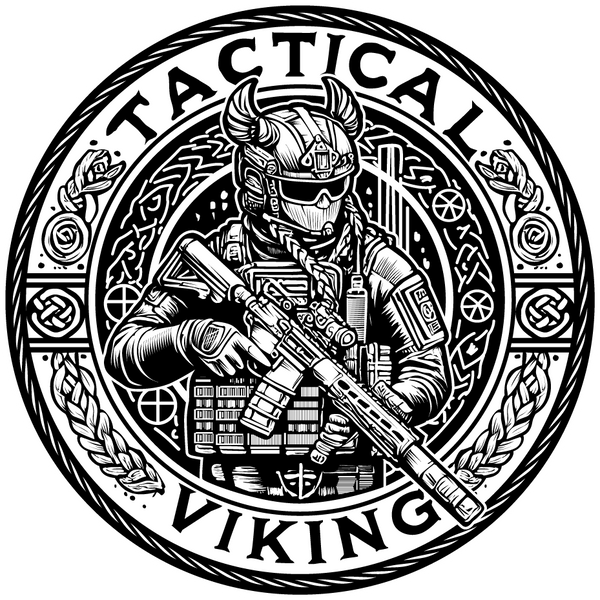
The Ugra River Standoff: A Turning Point for Russian Sovereignty
Share
The Ugra River Standoff: The Day a Nation Found Its Backbone
Introduction: A Silent War of Wills
The Ugra River Standoff may not carry the same weight in the Western world as other military clashes, but for those who value sovereignty, perseverance, and military honor, October 8, 1480 should never be forgotten. On this day, the long domination of Russia by the Mongol Golden Horde finally came to a halt, without a single sword drawn in the final act.
The significance of the Ugra River Standoff goes beyond medieval politics; it is a timeless reflection of how tactical patience, unity, and moral resolve can win where brute force fails. For military historians and modern patriots, it’s a blueprint for how a nation wins not just wars... but its identity.
The World in 1480: Mongol Chains and Muscovite Dreams
Since the 13th century, the Mongol Golden Horde had ruled over much of what is now Russia. Known as the "Tatar Yoke," this period was defined by heavy tributes, military subjugation, and humiliation at the hands of a foreign empire. Moscow was just one of many vassal cities forced to bend the knee, paying gold and obedience to the khans of the east.
But by the late 15th century, tides were shifting. The Grand Prince of Moscow, Ivan III (Ivan the Great), began to consolidate power and territory, quietly preparing for the day Russia would reclaim its autonomy. That day came on the banks of the Ugra River.
The Build-Up: Ivan III vs. Ahmed Khan
Tensions between Moscow and the Horde escalated through the 1470s. Ahmed Khan bin Küchük, the khan of the Great Horde, saw Ivan’s growing power as a threat and demanded renewed submission. Ivan refused.
In response, Ahmed Khan began a military campaign in 1480 to reassert dominance. Ivan III, aware of the numerical and cavalry superiority of the Horde, did not rush into open conflict. Instead, he chose the terrain, the timing, and the terms.
October 8, 1480 – The Ugra River Standoff Begins
Both armies met at the Ugra River, a small tributary west of Moscow. Separated by the water, the two forces glared across at one another for weeks. The river became the silent arena where history would be written; not with the roar of battle, but with the stillness of discipline.
Ivan’s forces held their ground, fortified by strong defensive positions and bolstered by alliances with other Rus princes. The Mongol forces, reliant on fast cavalry and raiding tactics, were halted in their tracks. This was not the open field of the Steppe; it was a waiting game, and Ivan had mastered the art of calculated inaction.
Military Strategy: The Power of Presence
The Ugra River Standoff was not a battle of swords but of strategy. Ivan III's patience, combined with the geographic bottleneck of the river, created a perfect example of how terrain and timing can negate superior numbers.
For military minds, this is textbook asymmetry. Rather than attack head-on, Ivan leveraged discipline, supply chains, and morale. Eventually, Ahmed Khan, unable to force a crossing and with supply issues mounting, ordered a retreat.
The Retreat of the Horde – A Bloodless Victory
When the Mongol army finally withdrew on November 11, 1480, they left more than just a riverbank behind. They surrendered their centuries-old grip on Russia. There was no formal treaty, no grand announcement but the symbolism was undeniable.
This bloodless military standoff achieved what countless battles over the last two centuries had failed to do: end Mongol control over Russian lands. From this moment, Moscow would rise as the core of a sovereign Russian state.
Legacy: The Birth of Modern Russian Identity
The Ugra River Standoff is more than a historical footnote, it is a monument to national resolve. Ivan III's calculated defiance birthed not just a political transformation but a cultural and psychological one. Russia was no longer a collection of scattered vassals. It was an emerging nation, forged not in fire, but in patience and unity.
For modern patriots, soldiers, and defenders of liberty, this event serves as a powerful reminder: not all battles require violence... but all victories demand courage.
Why It Still Matters: A Lesson for Warriors and Patriots
In today’s world, the idea of a "silent war" still echoes in diplomacy, cyber warfare, and ideological conflict. The Ugra River Standoff reminds us that sometimes the greatest act of strength is refusing to kneel.
To all who serve, defend, or honor their homeland, this day is your legacy too.
Final Thoughts
In an age where power is often defined by force, the Ugra River Standoff is a compelling counterpoint. It champions the warrior virtues of patience, resilience, and conviction. For those who wear the uniform or carry the burden of protecting others, this is a story worth remembering.
October 8th may pass unnoticed by most, but for students of military history and defenders of liberty, it is a flag planted in time. A day when a people stood still, and stood free.
